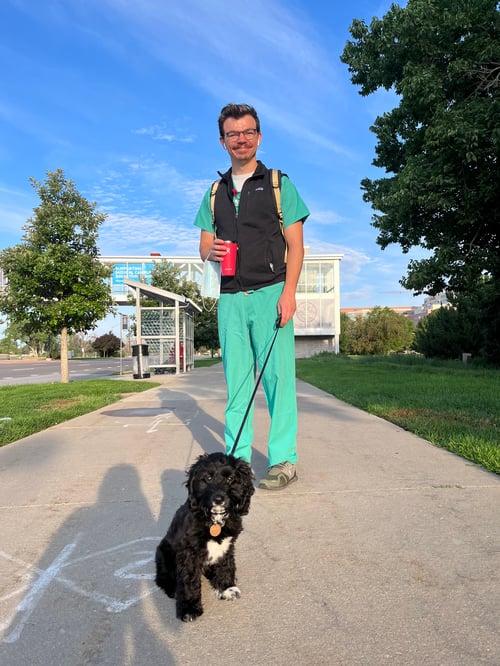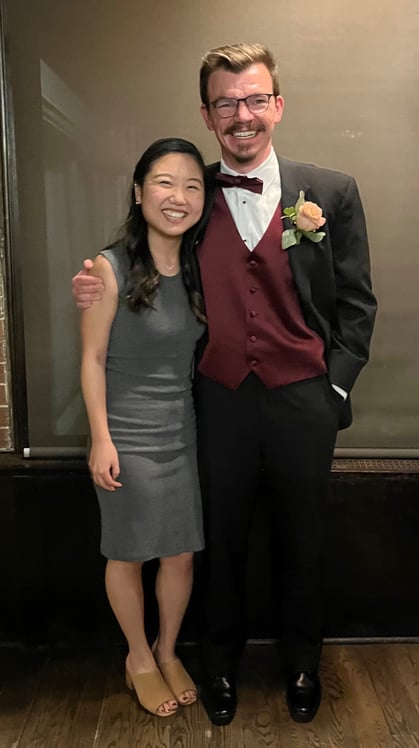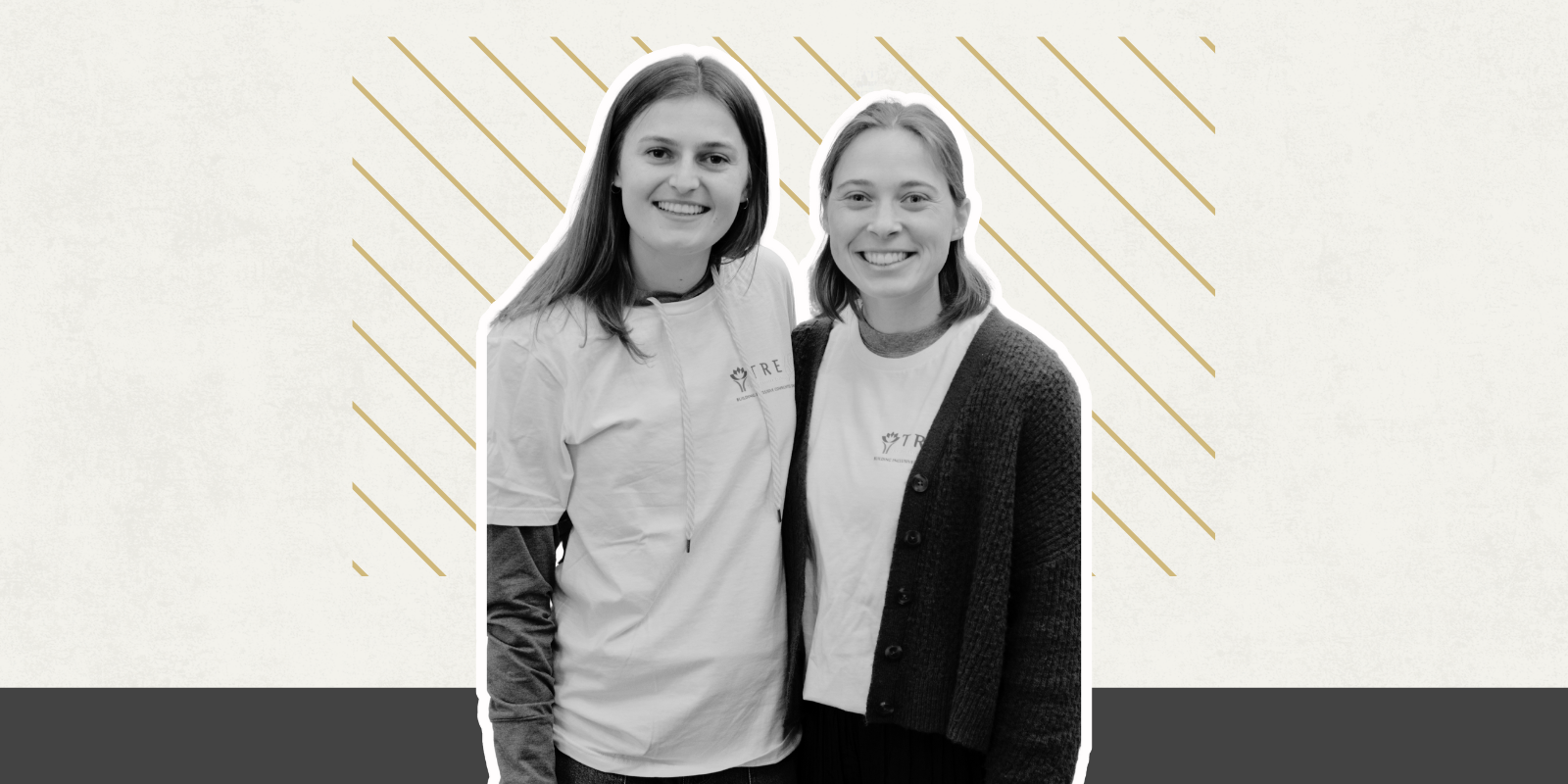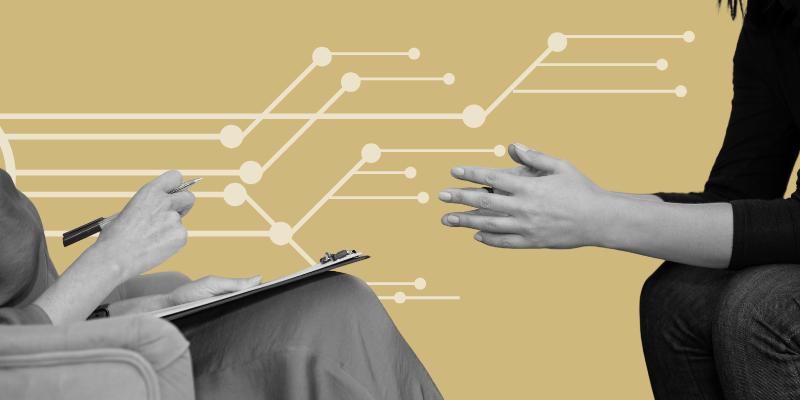One or two different answers on a middle school career quiz, and Nikolai Harroun might have become a dolphin trainer instead of a doctor.
As it turned out, though, dolphin trainer was number two on his list of results. Radiologist was number one.
“The school tried to match you with someone in that field so you could go shadow them for Career Day, and they were able to get me connected with a CU School of Medicine graduate,” Harroun says. “The doctor had scheduled a liver biopsy for that day, and the patient was especially nervous. Being an eighth grader, I obviously couldn't touch or do anything. But I just felt the sense that, ‘Oh, I could go and talk to the patient and try to help calm her down.’”
Harroun shared with the patient how excited he was to be there and thanked her for letting him be part of the experience as he was interested in being a doctor.
“I noticed her tension levels and her worries seem to dissipate a little bit,” says Harroun. “I really appreciated the impact that talking and hearing and sharing stories with patients could have on their experience in the medical system. That really lit the fire that would continue to grow over the course of high school and college.”
Part of the COVID class
Born and raised in Longmont, Colorado, Harroun went to Grinnell College in Iowa for his undergraduate degree in biochemistry and neuroscience, spending part of his time on campus playing for the school’s varsity soccer team.

Harroun with his dog, Artie.
After a year conducting research in the vascular surgery lab at Washington University in St. Louis, he started medical school at the University of Colorado School of Medicine in fall 2019. When the COVID-19 pandemic began just a few months later, his educational experience, like that of many other students, was turned upside down.
“We left for spring break in March 2020,” he says. “We had heard rumblings of COVID happening over in China, and maybe a case or two here, and then during spring break, they emailed us to say, ‘You're not coming back to campus.’ The next time my class was all together in the same place was during the start of our fourth year.”
The pandemic had an impact on his medical education, he says, but not necessarily for the worse. Most of his classes were online, but by the time he was scheduled to start clinical rotations, students were allowed in hospitals, where he was able to help patients during a historic time in medicine.
“One patient had COVID-induced pancreatitis, which had only been shown in case reports up to that point. So that was really interesting, to see the development of a new clinical condition,” he says. “It was interesting being part of redefining of what was going to be normal, which changed over the course of our training. I feel like change and adaptation is the new normal, so being able to adapt to changes and new things is now one of the paramount skills that med students need to have.”
Working with refugees
Harroun used COVID-19 as the basis for some of his research as well, working with East African refugees in Colorado Springs to learn more about vaccine hesitancy. One of his mentors in Colorado Springs, Assistant Professor of Internal Medicine Heather Cassidy, MD, put him in touch with an East African community leader named Albert, with whom Harroun and another medical student conducted home visits in the city’s refugee population.
“I was incredibly humbled every time they would welcome me into their home to have a discussion,” Harroun says. “My intention was to eventually talk about the COVID vaccine, but I found that it developed so much more trust when we just talked about what was on their mind. If we found our way to the COVID vaccine, great. But we might also talk about why it's important that their kid takes all of their antibiotics when they are prescribed them for an ear infection.
“If you're a refugee who doesn't speak the language, it's difficult to get all your questions answered in a meaningful way in our health care system. I was very happy to be able to provide some extra knowledge for those patients, and I'm proud of how much trust I was able to build with the community.”
Passing the baton
As he awaits Match Day on March 17, Harroun is excited to find out where he will do his residency in internal medicine. His plan is to follow his residency with a gastroenterology fellowship, remaining in an academic setting to nurture the love of teaching he developed during his time as a medical student.

Harroun and his partner, CU ophthalmology student Emmeline Kim.
“During fourth year, there are electives you can take that get you connected with junior medical students,” he says. “You teach them physical exam skills, how to interview patients, how to present. I volunteer at the free clinic in Colorado Springs that allows first-year medical students to work with patients as soon as their first or second month of medical school. It's fun to get the opportunity to help build that foundation for someone else.
“I came in with very little clinical experience before medical school, whereas some of my classmates had done numerous hours or even years of clinical work,” he continues. “I needed people to help me build that foundation for myself, and now, on the tail end of med school, it's nice to pass the baton to the next person.”
Harroun matched at the University of Colorado Division of General Internal Medicine.



